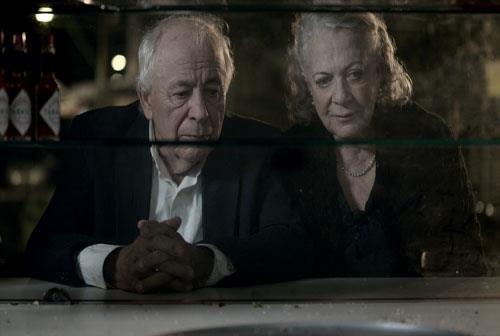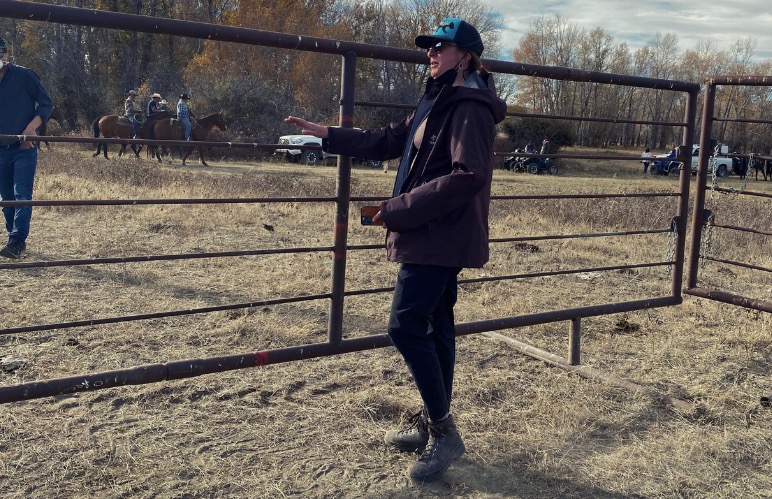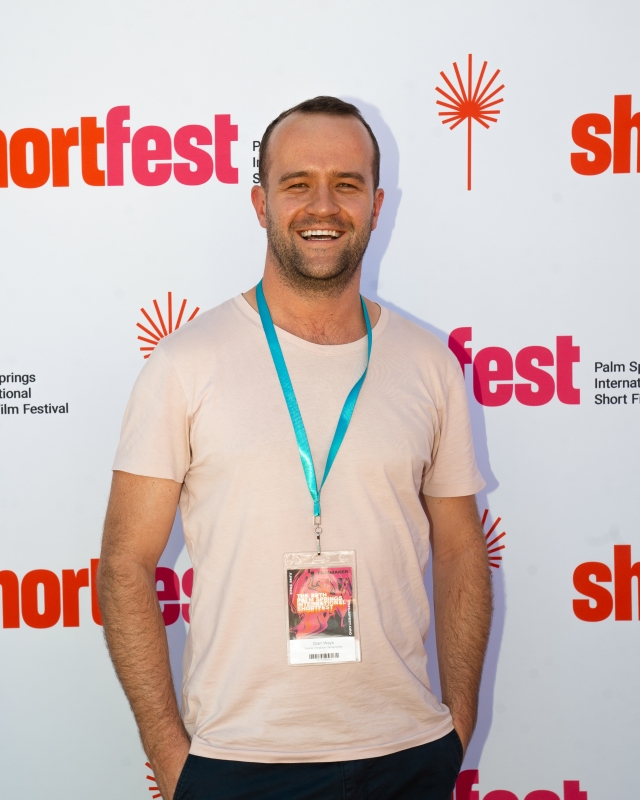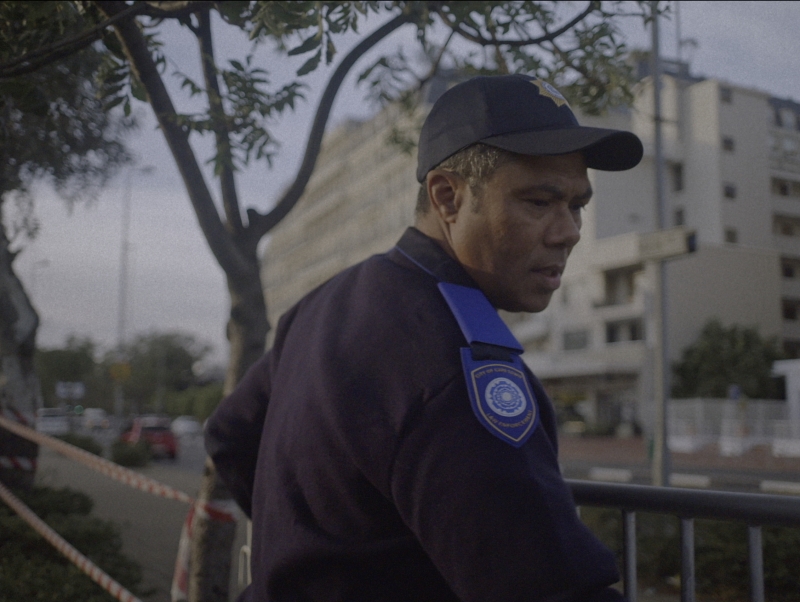|
|
||
|
Pro Tools
FILMFESTIVALS | 24/7 world wide coverageWelcome ! Enjoy the best of both worlds: Film & Festival News, exploring the best of the film festivals community. Launched in 1995, relentlessly connecting films to festivals, documenting and promoting festivals worldwide. Working on an upgrade soon. For collaboration, editorial contributions, or publicity, please send us an email here. User login |
Interview with Amir Manor for 'Epilogue' (2012)
Interview with Amir Manor for ‘Epilogue’ (2012). Amir Manor is an Israeli director who has made four short films ('Pouring Sun', 2006; 'Reds', 2007; 'Ruin', 2008; 'Lands', 2008) and one feature film, ‘Epilogue’ (2012), which screened in the international competition at the 53rd Thessaloniki International Film Festival. The film won four awards at TIFF: Special Jury Award for Originality and Innovation, Best Screenplay Award, Human Values Award and the Fischer Audience Award. I interviewed Amir shortly after his arrival to Thessaloniki.
ME: Can you tell us a bit about about your first feature film, ‘Epilogue’? AMIR: ‘Epilogue’ is about two old people who decide to commit suicide. The movie tells the story of the pioneers of Israel. They came to Israel from all over Europe and they decided to create a new society, a social democracy, and they gave their life to the country. They built the country from roads to economical structure, etc. and at the end of their life they found themselves being neglected, left aside. So they try to struggle to survive in Israel today, but they feel they don’t find themselves anymore in the country. They don’t recognize themselves in the country they created anymore. Actually, what’s happening in Israel right now is very similar to what is happening in Greece. I mean, we are a step behind Greece but we are going there now. Israel has the same sociological situation- the middle class has been squeezed down, everything is being privatized, they raised taxes, companies tend to treat people so low. So, what is happening in Israel is the same, going from a social democracy to the worst capitalistic country you can imagine. The movie tells the story of those people who came to the country and gave their life to it. They didn’t think about themselves and didn’t take anything for themselves, they just thought that what they were doing for themselves and the country was the same thing. At the end of their life they decide to commit suicide because they cannot live undignified. ME: It’s symbolic too because they are at the end of their life and yet they still want to cut their life short. AMIR: Yes, the movie is symbolic. They are a couple and they have a struggle between them. Berl is trying to fix the country because he still believes he can fix the country, but Hayuta is sick and she can't struggle anymore so she wants to commit suicide. Hayuta wants to leave the country while she still can choose to commit suicide. She doesn’t want to be hospitalized for age; rather, she wants to die with dignity and she wants to do it now while she can still choose to die. Berl still believes everything can be fixed though and has hope that their dreams can still be fulfilled. At the end of the movie, however, Berl understands her point of view and they commit suicide together. In the end, it’s a story about the couple and also a story about Israel and the changes the country went through. ME: It’s definitely a recurring theme in art around the world right now, the struggle between dying past and modernization. AMIR: But we can still change the future. That’s why I’m making movies. ME: How does it feel to be in Thessaloniki? AMIR: Great. Actually, my family is from Thessaloniki. My grandmother was from here and she left when the big fires started in 1917. She was a teenager and then she married my grandfather and they left Thessaloniki for Israel. She left everything she had. We are still eating the Greek food in the house and listening to the music and everything. So, I’m half Greek. My other side is from Spain. My grandfather used to be a fisherman from Thessaloniki. My grandparents died about three years ago and actually the characters are about them. They were ill. ME: Was it a long personal journey to make this film? AMIR: Yes, it took four years since I started writing it. But that’s how it is. It’s a process. ME: This is your first feature film. Are you already at work on your next? AMIR: Yes, I already got development money. I don’t have a producer yet but I got money from the Israeli film fund and money from France and I’m moving to Paris for three months to write it. I’ll be living there for three months from December to write the script.
Interview by Vanessa McMahon ‘Epilogue’ summary: “The requiem of a common journey composed by the heroes themselves: Hayuta and Berl, an Israeli elderly couple, the last of the Romantics, fail to adjust to the modern age. They live in a small appartment, surrounded by memorabilia – the remains of a lifetime. They stand for a generation of intellectuals who dreamed of better days. The society they live in will soon collapse – and so will their aging bodies. Alienated and miserable, they feel detached from an ever-changing world. A touching portrait of an era, filmed in a delicate fashion, demonstrating excellence in the use of the language of the medium. The couple’s journey towards the end brings to the fore virtues and morals undermined by rapid social changes.” Anonymous.
Filmography Selected 2006 Pouring Sun (short) 2007 Reds (short) 2008 Ruin (short) 2008 Lands (short) 2012 Epilogue Biography A director and scriptwriter, he grewup in Rishon Lezion, Israel. At the age of 18 he got involved in “Ha Noar Haoved Ve Halomed,” a socialist youth movement. At 25 he left the movement and moved to Jerusalem, where he worked as a social-financial journalist at Kol Ha’ir magazine. Later on he worked at Tel Aviv’s Ha’ir magazine. Two years later he joined the TV program “Uvda” (the Israeli equivalent of “60 Minutes”) as a journalist and worked for Ma’ariv– one of the largest daily newspapers in Israel. He is a graduate of the Film & Television Department at Tel Aviv University. His first short film, Reds, won the first prize for Best Drama at the Jerusalem Film Festival 2007. Epilogue is his first feature film.
'Epilogue' (2012)
29.12.2012 | Vanessa McMahon's blog Cat. : 53rd Thessaloniki Film Festival Abu Dhabi Alexandria AMIR MANOR Apostrophe Audience Award bank Berlin Egypt energy English spelling Entertainment Entertainment Europe food France Frances Ramsden Greece HTML element Human Interest Human Interest Interview with Amir Manor for 'Epilogue' (2012) Israel JÉRUSALEM Linguistics Los Angeles Mahmoud Sabit Mixture New York Orthography Palestinian Territories Paris Philippe Dib Politics Politics Preston Sturgess Punctuation Rishon Lezion Social Issues Social Issues Spain Technology Technology TEL AVIV Tel Aviv University the 2012 Abu Dhabi Film Festival the 53rd Thessaloniki Film Festival The 53rd Thessaloniki International Film Festival the Jerusalem Film Festival Vanessa McMahon Wael Omar Photo Wael Omar Interviews
|
LinksThe Bulletin Board > The Bulletin Board Blog Following News Interview with EFM (Berlin) Director
Interview with IFTA Chairman (AFM)
Interview with Cannes Marche du Film Director
Filmfestivals.com dailies live coverage from > Live from India
Useful links for the indies: > Big files transfer
+ SUBSCRIBE to the weekly Newsletter Deals+ Special offers and discounts from filmfestivals.com Selected fun offers
> Bonus Casino
User imagesAbout Vanessa McMahonThe EditorUser contributions |



























 McMahon Vanessa
McMahon Vanessa 


